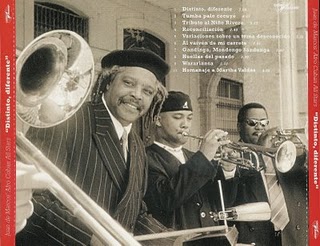12.17.1 Juan de Marcos González

Juan de Marcos González, Cuban musician, producer, and composer, was born in Havana in 1954. He is considered a true prophet of Cuban music at the turn of the century. He graduated as a hydraulic engineer in Moscow and earned his doctorate from the Institute of Agricultural Sciences in the same city. His father, a singer and musician in the legendary Arsenio Rodríguez’s orchestra, convinced him to become a scientist.
Without abandoning his engineering studies, in 1978, Juan de Marcos and a group of friends, including the tres, composing, and singing, founded the band Sierra Maestra. With Sierra Maestra, Juan de Marcos played at various jazz festivals, introducing the innovative approach to traditional Cuban music. This promotional effort was supported by the Cuban Institute of Friendship with the Peoples and led by Chucho Hernández.
The group’s success encouraged them to record a dozen albums and tour Europe. On one of those trips, in 1994, Juan de Marcos met Nick Gold, producer of the independent record label World Circuit, who released two more Sierra Maestra albums.
Juan de Marcos proposed to Gold that they organize an orchestra in the 1950s style, a kind of Afro-Cuban Big Band from the Golden Age. He would assemble the musicians himself, and when they were about to record the album, American guitarist Ry Cooder, also interested in traditional Cuban music, appeared.
Thus, Buena Vista Social Club and Afrocuban All Stars would emerge simultaneously, under the leadership of Juan de Marcos González, who would also launch the solo careers of some of the members of both groups, such as Ibrahim Ferrer, Rubén González, Orlando ‘Cachaíto’ López, and ‘Guajiro’ Mirabal.
Buena Vista Social Club was undeniably a universal triumph. It made traditional Cuban music one of the three most powerful in the world at the time. The documentary based on those experiences by the celebrated German director Wim Wenders was nominated for an Oscar.
Later, Juan de Marcos founded his own record label, DM Ahora! Records, and re-founded the Afrocuban All Stars orchestra, changing virtually the entire staff. He incorporated young musicians who had been scattered throughout various groups.
The album Step Forward is an important showcase of the music being made today by Cuba’s new generation. It combines new compositions with extraordinary modern versions of classic songs. It ranges from Contradanza, Son Montuno, and Batumbata to Timba, Balada Tropical, and jazz descarga.
In the early 2000s, Juan de Marcos worked on an album by Amadito Valdés, the timbalero of the Buena Vista Social Club, with the Japanese company Ahora Corporation. It’s a small-format album, in contrast to the big band sound used with the All Stars. Overall, the album has an appealing sound, recreating, from a contemporary perspective, many unfamiliar genres of Cuban music, such as Contradanza and Afro. Paquito D’Rivera and Sergio Vitier participated in the project.
González has performed in numerous countries and at various music festivals. In 2010, he participated with his orchestra in the Cartagena Jazz Festival (Colombia), and a performance in Tokyo, Japan, is scheduled for early 2011.
Juan de Marcos González is intimately linked to the Cuban music scene of recent decades with his Sierra Maestra and Buena Vista Social Club albums. He has continued to showcase the magic of Cuban music to the world with The Afro Cuban All Stars, a collaboration between four generations of musicians, blending the old with the new, resulting in a magnificent musical result.








